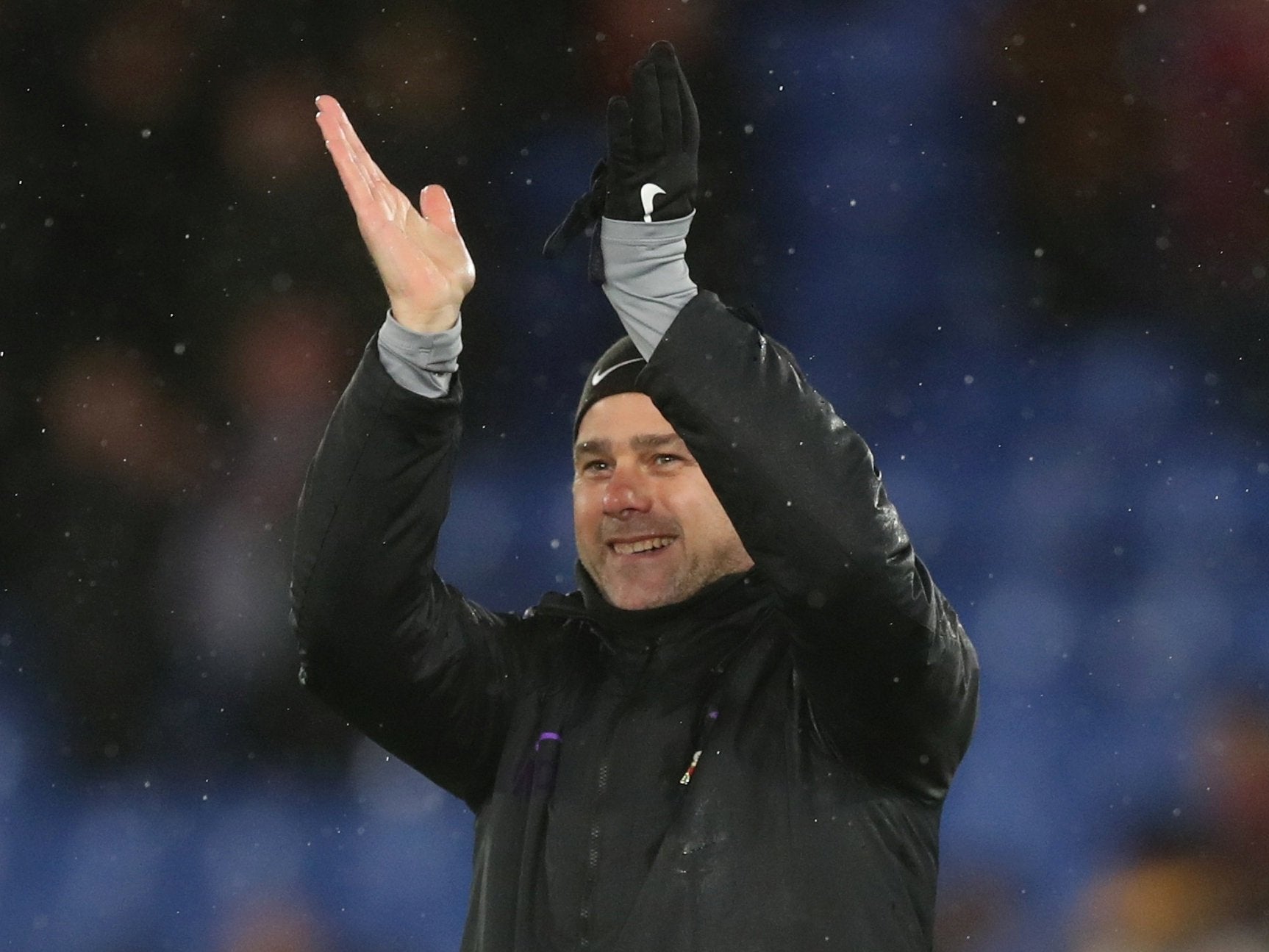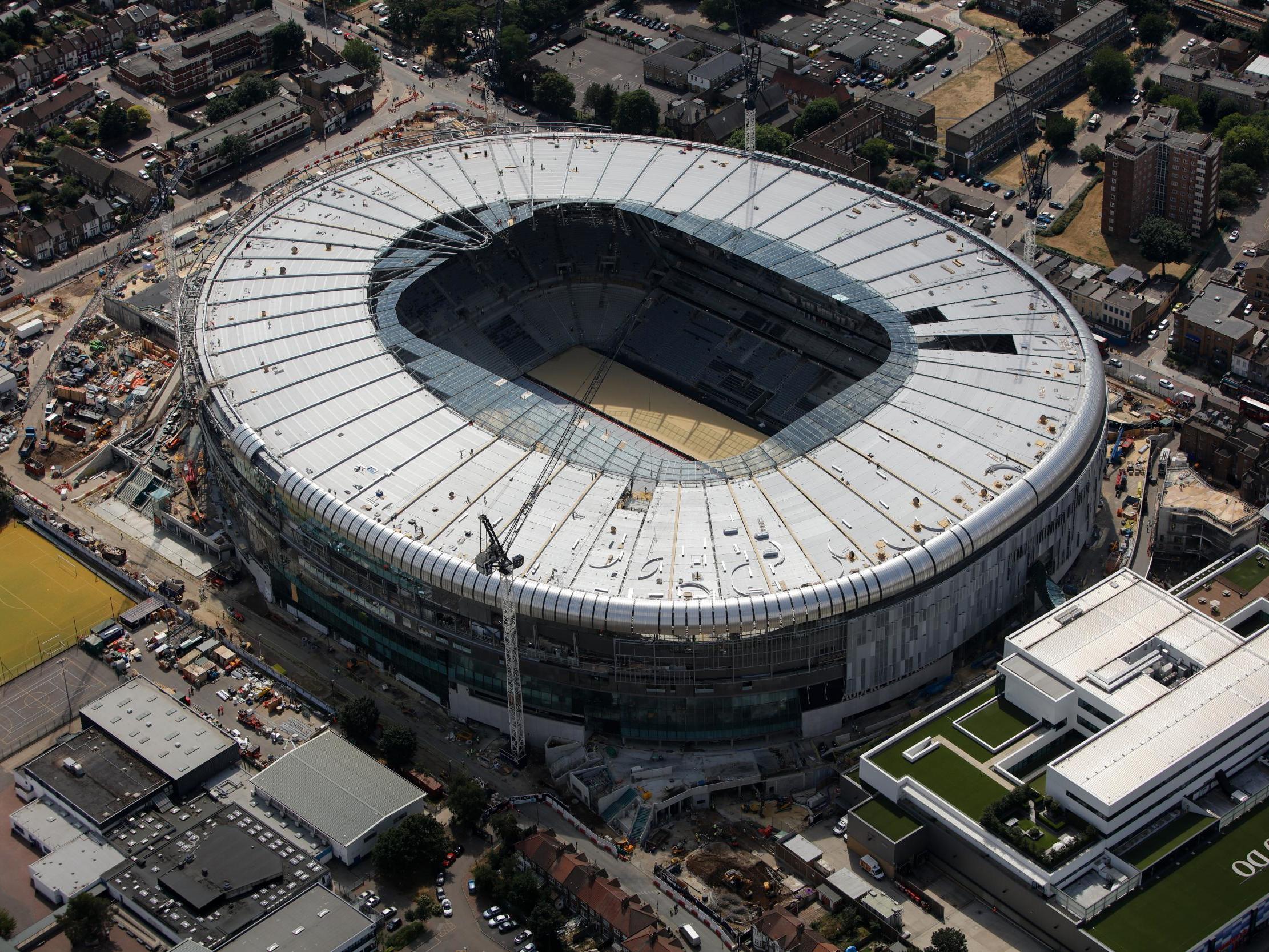No stadium, no transfers and injured players: can Mauricio Pochettino’s ‘energia universal’ hold out at Spurs?
What the Argentine has achieved at Tottenham is admirable, but there is surely a limit to how long can he stay at a club where their future depends on which side of the bed he gets out of each morning

A few days ago, Mauricio Pochettino paid a visit to White Hart Lane. The new stadium still isn’t quite ready yet: like Achilles and the tortoise, the closer the due date approaches, the more it shuffles cheekily into the future. Originally it was supposed to be complete in time for the start of the season, then the autumn, then December, now they’re even saying it could even be February. But one way or another, it’s close: close enough to feel real. And as Pochettino strode through the deserted grounds, you sense he wasn’t just inspecting the changing facilities or counting the USB charging points, but visualising: imagining, imbibing, trying to gauge the energy in a place he will soon be calling home.
As ever with Pochettino, this is what it comes back to. Ever since he was a child, he has believed in a vital invisible force called “energia universal”: a sort of aura that powers the world and everyone and everything in it. People have an energy, but so do places, and so do moments and situations. “Decisions, personal relationships and absolutely everything else are a matter of energy,” he writes in his book Brave New World. “Since those early days, I’ve had the ability to notice something powerful that you can’t see, but does exist.” And as the only man in English football who glimpsed the potential of Moussa Sissoko 18 months ago, perhaps it’s worth hearing him out.
By the time you read that Pochettino keeps a bowl of lemons in his office at Enfield because he believes they absorb negative energy from the room, you may be wondering whether Tottenham’s manager would benefit from the sort of timely intervention that could rescue him from a life of translucent crystals, solstice worship and maiden sacrifice. Then again, when you’ve turned the Premier League’s most serially underachieving club into Champions League furniture, maybe it’s advisable not to tinker. Or, put more simply: it may just, conceivably, be possible that Pochettino is on to something here.
The point is this. Among the English or even European footballing elite, it’s hard to think of a club whose fortunes are so inextricably bound with the whims and moods of a single man. Pep Guardiola didn’t build the modern Manchester City; he’s just the guy at the controls. Lionel Messi just wants everyone to leave him alone so he can be really good at football. Even at Liverpool, the relationship between the fans and Jurgen Klopp is best characterised as a sort of giddy dialectic, a drunken reel in which it’s never quite clear which is the divine and which the intercessor.
At Spurs, by contrast, it’s no contest. Pochettino is the one. He’s the weather. When he beams, everyone beams. When he looks a bit grey and podgy, his team play grey, podgy football and fans get ratty and irritable. And the best thing about running a club on “energia universal” is that it barely costs a penny. Decades from now, students of Tottenham’s bold new era will marvel at how an entire club was essentially remade on the basis of one guy going around telling everyone how awesome they were.

For much of this season, however, Spurs haven’t looked very awesome. The swanky new stadium has turned into an extremely expensive albatross. Not a single player was signed all summer, while Tottenham’s rivals strengthened lavishly (well, everyone rated Fred at the time). The World Cup burnt out half of Pochettino’s squad to husks. Injuries have bitten hard. Many of their best players haven’t looked remotely close to their best form. A series of setbacks has put them on the verge of Champions League elimination. For a manager who has built an entire career on purging all vestiges of negative energy, this is a task that has occasionally looked beyond even Pochettino’s transcendental, citrus-based powers.
On Saturday evening, Chelsea will be the latest visitors to Wembley, where Tottenham are still begrudgingly couch-surfing. How conflicted Pochettino must feel when he gazes across the city at the soppy, faddish welcome accorded to their chain-smoking, high-pressing ascetic Maurizio Sarri. Admired, adored and showered with transfer funds, Sarri is reaping the principal asset a new coach has at his disposal: he’s not the old guy. As important as the boldness of his footballing vision is its freshness: the short sharp shock treatment that fifth-season managers like Pochettino can view only with nostalgia.

Back when Sarri was at Napoli, Pochettino feted him as one of the world’s leading coaches, and his team as one of the most beautiful in the world. Now he’s a direct rival, a slightly different approach is required. “This season, they are competing in the Europa League again,” he noted drily on Thursday. “It’s completely different for Manchester City, United, Liverpool or us, because we’re competing in the Champions League. Of course, Chelsea have an unbelievable squad. This summer they invested, they signed quality players, they added to the squad. They have one more point than us. It’s normal.”
The shade was subtle but unmistakable. And at times, as Tottenham have laboured their way to another gritty 1-0 win against inferior opposition, or suffered inevitable knockout defeat to a club that could probably buy it several times over, you wonder whether Pochettino isn’t ultimately destined for one of these other, more conventional clubs: where billionaires purchase wonderfully exciting footballers as a surrogate for morality, where the trophies have always flowed like champagne. The sort of club where you don’t have to pretend through gritted teeth that you were delighted with Eric Dier’s performance tonight. Where the tides don’t rise and fall based on which side of the bed you got out that morning, where you don’t have to be happy all the time, where you don’t have to swallow down your mortal fear that your only good striker will get injured, because you can just go out and buy another.
But then you listen to Pochettino talking about his visit to the stadium this week, and you remember that he sees the world, and the game, in a slightly different way to the rest of us. “We are so excited,” he said. “We can’t wait to move. My idea is to move as soon as possible. If we can move tomorrow, then tomorrow. But I know that is difficult. If not January, then February. I think it is so close. Yesterday I was there and it is *so close*.”
If you want to find positive aura, you can see it anywhere. Tottenham may have looked laboured for much of the season, but it’s still been their best start in the Premier League era. They’re only five points off the lead. The likes of Christian Eriksen and Dele Alli and Son Heung-min are beginning to find their feet again. Jan Vertonghen’s back from injury. Sissoko is starting to play like Graeme Souness. Erik Lamela is good again. And just a few miles away on the site of their former home, a phoenix is rising from the rubble. You could probably offer a valid counterpoint to any of the above. But as Pochettino himself would doubtless put it, that’s the thing about energy: you can’t see it. Sometimes you just have to feel.
Join our commenting forum
Join thought-provoking conversations, follow other Independent readers and see their replies
Comments